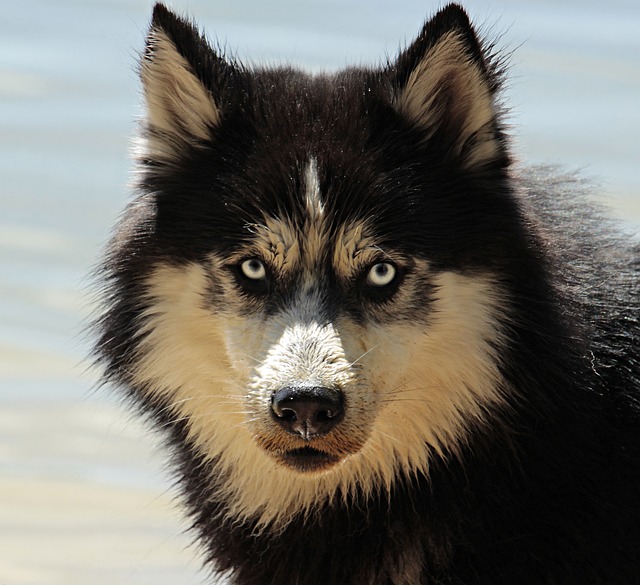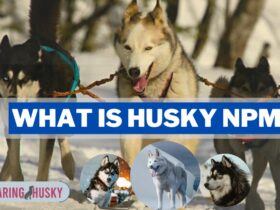Huskies, with their striking blue eyes, thick fur, and wolf-like appearance, have captured the hearts of dog lovers around the world. Renowned for their beauty and intelligence, Huskies are undeniably captivating pets. However, their allure often raises a critical question for potential owners: Are Huskies high maintenance? This article explores the intricate world of Husky ownership, delving into their unique characteristics, care requirements, and the responsibilities that come with having one of these remarkable canines as a member of your family. From nutrition and grooming to training and common challenges, we will uncover the essentials of Husky care, providing a comprehensive guide to help you decide if this breed is the right fit for you.
Are Huskies High Maintenance?
Yes, Huskies are considered high maintenance dogs. They have specific care needs due to their thick double coat, high energy levels, and independent nature. Huskies require regular grooming, ample exercise, and consistent training. Additionally, their strong prey drive and tendency to escape demand a secure environment. While they make loyal and affectionate companions, potential owners should be prepared for the commitment and dedication required to meet a Husky’s needs.
Costs Of Husky Ownership
Owning a Husky can be a rewarding experience, but it comes with financial responsibilities that potential owners should be aware of. While the love and companionship of a Husky are priceless, it’s essential to budget for their care. Here, we break down the costs associated with Husky ownership:
- Initial Purchase Or Adoption: The first expense is acquiring your Husky. You can either purchase a Husky from a breeder or adopt one from a rescue organization. Prices vary widely but can range from hundreds to over a thousand dollars for a purebred Husky. Adoption fees are typically lower but still require a financial commitment.
- Food: Huskies are medium to large dogs and require a substantial amount of high-quality dog food. Depending on the brand and quality, you can expect to spend around $50 to $100 per month on dog food.
- Grooming: Huskies have a thick double coat that sheds year-round and requires regular grooming. Brushes, shampoos, and grooming tools can cost around $20 to $50 per month.
- Veterinary Care: Routine veterinary care, including vaccinations, check-ups, and preventive medications, can add up to approximately $500 to $800 annually. Emergency vet visits or unexpected health issues can incur additional costs.
- Training: Obedience training and socialization are crucial for Huskies. Training classes or sessions with a professional trainer can range from $100 to $500 or more.
- Supplies: Initial purchases of dog crates, beds, collars, leashes, toys, and food bowls can cost around $100 to $200.
- Licensing And Registration: Many areas require dog owners to license and register their pets, which often includes a fee of $10 to $50 per year.
- Exercise And Entertainment: Huskies need ample exercise and mental stimulation. Costs for activities such as doggy daycare, pet sitters, or agility classes can vary but should be factored into the budget.
- Pet Insurance: Consider investing in pet insurance to help cover unexpected medical expenses. Monthly premiums typically range from $30 to $50.
- Miscellaneous Costs: Be prepared for occasional expenses like replacing chewed items, pet-safe cleaning products, and other unforeseen costs.
Responsible Husky Ownership
Huskies are incredible companions, but they require responsible ownership to thrive and lead happy lives. Responsible Husky ownership not only benefits the dog but also contributes to the well-being of the broader canine community. Here are key aspects of responsible Husky ownership:
- Research Before Getting A Husky: Thoroughly research the breed’s characteristics, needs, and temperament to ensure they align with your lifestyle.
- Adopt From Reputable Sources: Consider adopting from reputable rescue organizations or ethical breeders who prioritize the health and well-being of the dogs.
- Commit To Proper Training: Invest time and effort in obedience training, socialization, and positive reinforcement methods to address the Husky’s independent nature.
- Provide Adequate Exercise: Huskies need daily exercise and mental stimulation. Commit to regular walks, runs, and engaging activities to keep them physically and mentally fit.
- Grooming And Health Care: Stay on top of grooming needs, including brushing and regular vet visits. Address any health concerns promptly.
- Secure Your Property: Huskies are known escape artists. Ensure your property is secure to prevent them from wandering or getting lost.
- Socialize With Other Dogs And People: Huskies can be sociable, but early socialization is vital. Expose them to various people, pets, and environments from a young age.
- Prevent Overbreeding: If you decide to breed your Husky, do so responsibly, adhering to ethical breeding practices, and prioritize the health of the mother and puppies.
- Be Prepared For The Long Haul: Commit to caring for your Husky throughout their lifetime, which can be 12 years or more. Ensure you have the financial means to provide for their needs.
- Advocate For The Breed: Advocate for responsible Husky ownership within your community. Encourage education and awareness about the breed.
Pros And Cons Of Husky Ownership
Owning a Husky can be a rewarding experience, but it’s important to consider both the advantages and challenges before bringing one into your life. Here’s a balanced look at the pros and cons of Husky ownership:
Pros:
- Loyal Companionship: Huskies are known for their loyalty and affection toward their owners. They form strong bonds and are often referred to as “velcro dogs” for their desire to be close to their human family.
- Stunning Appearance: With their striking blue eyes and wolf-like appearance, Huskies are undeniably beautiful dogs that turn heads wherever they go.
- Energetic Playmates: If you’re an active individual or family, Huskies make excellent companions for outdoor activities like hiking, jogging, and even sledding.
- Intelligence: Huskies are intelligent dogs and can learn commands and tricks with proper training. Their problem-solving abilities make them engaging pets.
- Low Allergenicity: Huskies are considered a hypoallergenic breed, which means they produce fewer allergens and are suitable for some allergy sufferers.
Cons:
- High Exercise Needs: Huskies have boundless energy and require substantial daily exercise. Without proper physical activity, they can become bored and may engage in destructive behavior.
- Heavy Shedding: Their thick double coat sheds profusely year-round, requiring regular grooming and frequent vacuuming. They “blow” their coat twice a year, shedding even more during these periods.
- Independence: Huskies are independent by nature and may not always be obedient. Training can be challenging, especially for first-time dog owners.
- Escape Artists: Huskies are notorious for their escape skills. They can dig, jump, or find creative ways to get out of enclosures, so a secure environment is a must.
- Not For Hot Climates: Their thick coat is designed for cold weather, making Huskies prone to heat-related issues in hot climates. They require extra care in warm weather.
- Prey Drive: Huskies have a strong prey drive, which means they may chase after small animals, making them potentially unsafe around smaller pets.
Common Husky Challenges
While Huskies are known for their beauty and loyalty, they come with a set of common challenges that prospective owners should be aware of:
- Digging: Huskies have a natural instinct to dig. They may dig to escape, cool down in hot weather, or simply out of boredom. This behavior can lead to damaged yards and gardens.
- Escaping: Huskies are renowned escape artists. They can jump high fences, dig under them, or find other ways to get out. Ensuring a secure and Husky-proof enclosure is essential.
- Separation Anxiety: Huskies are social dogs and can suffer from separation anxiety when left alone for extended periods. This can lead to destructive behavior and excessive howling or barking.
- Excessive Shedding: Huskies have a double coat that sheds profusely year-round. During shedding season, they “blow” their coat, shedding even more. Regular grooming is necessary to manage the fur.
- Prey Drive: Huskies have a strong prey drive and may chase after smaller animals, including cats or small dogs. Proper socialization and supervision are essential when introducing them to other pets.
- Vocalization: Huskies are known for their vocal nature. They “talk” and howl, which some owners find endearing but can be noisy for others. Training can help control excessive vocalization.
- Energy Levels: Huskies are high-energy dogs that require ample exercise. Without sufficient physical and mental stimulation, they can become restless and engage in destructive behavior.
- Cold Weather Dependence: Due to their thick coats, Huskies are more comfortable in colder climates. In hot weather, they are prone to overheating and should be kept cool.
- Training Challenges: Huskies are intelligent but can be stubborn and independent, making training more challenging than with some other breeds. Consistent, positive reinforcement-based training is essential.
- Veterinary Costs: The breed is prone to certain health issues, including hip dysplasia and eye conditions. Routine veterinary care and potential medical expenses should be considered.
Conclusion
In the world of canine companions, Huskies stand out with their mesmerizing looks and unwavering loyalty. While they offer companionship and a unique bond, they also present challenges that potential owners must consider. From their high energy levels and shedding to their independent nature and escape artist tendencies, Huskies require dedicated care. However, for those willing to invest time and effort into training, exercise, and grooming, the rewards of Husky ownership can be immeasurable. Ultimately, the decision to welcome a Husky into your life should be made with careful consideration of both their pros and challenges.
FAQ’s
Are Huskies Good With Children And Other Pets?
Huskies can be good with children and other pets if properly socialized from a young age. However, supervision is crucial, especially with smaller animals due to their prey drive.
Do Huskies Require A Lot Of Exercise?
Yes, Huskies are high-energy dogs that need daily exercise and mental stimulation to stay happy and healthy.
Are Huskies Hypoallergenic?
Huskies are considered a hypoallergenic breed, meaning they produce fewer allergens, but they still shed and may trigger allergies in some individuals.
Can Huskies Adapt To Hot Climates?
Huskies are better suited to colder climates, and hot weather can be challenging for them. They require extra care to stay cool in warm climates.
Are Huskies Easy To Train?
Training Huskies can be challenging due to their independent nature, but with consistent and positive reinforcement-based training, they can learn commands and tricks.







Leave a Reply